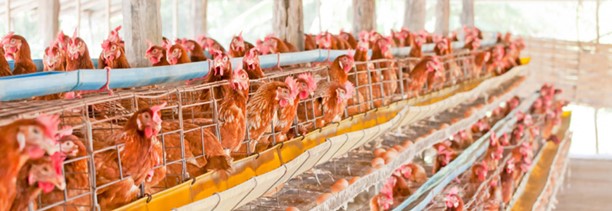Beata Mudjanima
With the recent temperature fluctuations, most farmers have been affected by the changes within their poultry’s flocks.
This can run from the flock’s feather health, associated with thermal risks, egg productivity, and health risks. We will dive into the three aspects, and how to mitigate them.
Feather health
Chickens grow thicker and denser feathers to help them insulate against the cold. This natural adaptation requires additional nutrients and energy. However, feathers can become brittle, and break should the flock be exposed to extreme cold without adequate shelter. This also leads to poor feather condition, discomfort due to their weight, which makes it difficult for them to move freely, and potential health issues if birds are not kept in a dry and well-ventilated coop.
As temperatures rise during spring and summer, chickens are subjected to a moulting (shedding) cycle as a response mechanism to heat. Chickens shed old feathers to grow new ones better-suited for heat regulation. Remember that prolonged heat can also cause feathers to become dry and brittle. Chickens lose feathers due to heat stress, so they might spend more time preening to keep their feathers in good condition to manage the heat.
Egg productivity
Cold weather can cause a drop in egg production due to increased need for body heat production and additional stress on the flock. Hence, farmers are advised to always feed 130g of Feedmaster’s layer mash per hen per day during winter to cater for this and 110g/hen/day during summer months.
During the warmer season, high temperatures can cause risks of dehydration and reduced feed intake due to decreased appetite. To prevent chickens from producing too much body heat, it is essential to avoid stress, which can lead to inconsistent egg production and lower egg quality.
Health risks
Poor ventilation and cold weather can lead to respiratory problems like pneumonia and chronic respiratory diseases like mycoplasma. Both extreme heat and extreme cold can weaken the chickens’ immune system, making them more susceptible to diseases and infections. This increases production costs and decreases output.
Management tips
It is essential to ensure the coop protects against extreme weather conditions, and provides adequate ventilation to manage humidity, especially during hot weather. Having thermometers is advised, which will help carry out the proper management practices.
Ensure chickens have access to clean, safe drinking water and a balanced diet rich in essential nutrients to support growth, productivity and feather health. Farmers are advised to carry out regular health checks to monitor signs of health stress or cold-related issues.
Maintaining a stable and comfortable environment is critical to ensuring the health and productivity of chickens in all temperatures.
*Beata Mudjanima is a technical advisor for Communal North, Feedmaster, and specialises in poultry. She can be reached on bauala@feedmaster.com.na


